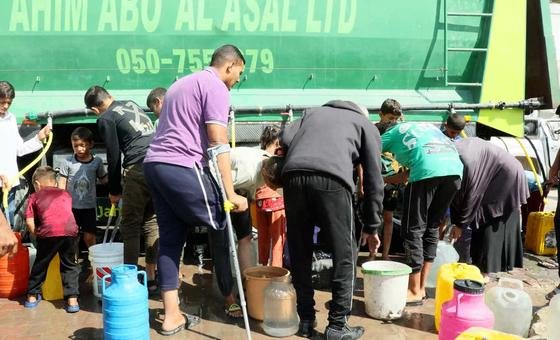In a statement issued on Saturday, UN agencies say fuel is very important for living in Gaza and there are difficult situations for 2 million people in the absence.
Fuel, water treatment centers, bakery, ambulances have confirmed many other necessary services.
However, due to lack of permanent fuel supply, maternity health, newborn care, intensive treatment system and ambulance services were also suspended.
Even in violent conflict, fuel population is already becoming a catastrophic situation by fighting deep food insecurity for the Palestinian population.
According to the UN humanitarian agencies, efforts to provide health care, clean water supply, lack of adequate fuel will be completely stopped.
Inadequate supply of fuel
According to UN agencies, a small amount of fuel transport was allowed in Gaza for the first time in the last 3 days. This is welcome, but 75 thousand liters are not enough to supply only two days and meet the daily requirements of the local people.
Earlier, UN spokesman Stepan Duzarick expressed concern over Gaza’s declining situation in a conversation with reporters on Saturday.
“Every day is cut off without a ceasefire, the cause of death can be stopped. Children lose their lives and hungry people are trying to get some help.”
Stepan Duzrik expressed unnecessary in the continuation of the sanctions imposed on Israel’s support supply.
Risk of life
He said the fuel was distributed in several hospitals on Thursday, but only in southern Gaza. Thus, since the Israeli administration has rejected the attempt to supply fuel to North Gaza.
In this way, efforts are at risk of being dismissed.
A UN spokesman says the fuel gap has affected the water purification process, ambulance service and waste management and all these services are on the way to cracking.
On Thursday, six humanitarian missions need coordination with the Israeli administration but only six were permitted. Five people were directly rejected, when four missions were blocked or delayed.
For the past four months in Gaza, including material for shelter, which has been prevented from reaching supply with challenging for thousands of people.

